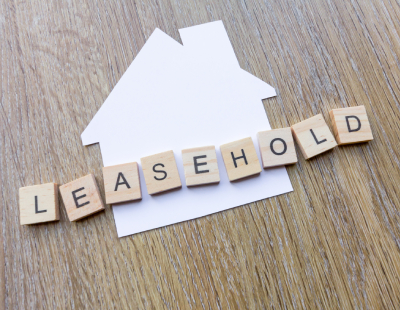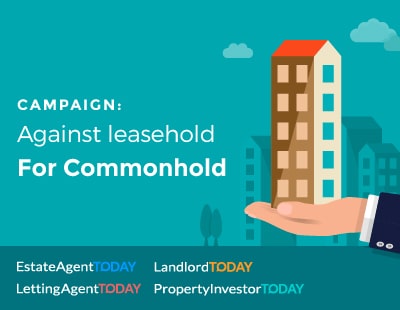Whether residents want to be or not, they will now be jointly responsible for the safety, maintenance, and upkeep of the apartment buildings in which they live or own flats. Regardless of size or complexity.
The timing of this is especially baffling. We are currently in the midst of a building safety crisis brought about by the failure of successive governments to address the inadequacies of building safety regulations. Professional freeholders are working across their apartment blocks to secure urgent repairs and remediation, providing cash flow, negotiating with contractors, and dealing with insurers; in short fulfilling their lease obligations in a time of crisis.
It is therefore astonishing that at this precise juncture the government announces a proposal that will take freeholders out of the equation, force all management and safety responsibilities onto individual flat-owners and then attach a series of additional financial and criminal liabilities to them through their building safety reforms.
And it’s not as though the long-term consequences of abolishing leasehold cannot be foreseen. We have practical real-world evidence of what the future looks like for apartment owners if the government’s proposals come into force. The commonhold system, which lest we forget has existed alongside leasehold for 20 years in England and been roundly rejected by consumers, has been put to the test in Scotland, and found wanting.
Following the removal of freeholders in 2012, over 80% of buildings have fallen into critical disrepair, with all the attendant safety issues that sit alongside that, and with thousands of leaseholders unable to fund the £2 billion that is needed for remedial works.
A study by RICS and BEFS found that the most critical issues in Scotland were leaseholders reaching a majority agreement and getting all owners to fund the works in advance, which significantly slowed down the remedial processes and vastly increased costs for residents. This is evidence that government is aware of yet chooses to ignore when setting out its own policies.
It is a strange feature of this debate that commonhold advocates can simultaneously argue that leaseholders should not be responsible for historic building safety issues (a sentiment with which I agree), while also proposing that they are lumbered with yet more obligations in this space.
Ministry of Housing, Communities and Local Goverment (MHCLG) officials have benefitted enormously from having single, professional points of contact for the delivery of remediation work on buildings across the country. Ministers know this, and yet they publicly advocate for the removal of freeholders.
Can they, in all honesty, argue that they would rather be dealing with millions of untrained and under-resourced residents in order to fix one of the biggest crises the sectors has ever faced?
It is also important to remember that residents and leaseholders are often different people. There are now 2.7 million buy-to-let investors in the UK, meaning over half of the country’s flats are owned by those who have invested in their property as a nest egg.
These people may live hundreds, if not thousands, of miles away and so they rely on the presence of a freeholder to ensure the longevity of their building. How exactly are these investors going to become active participants in a commonhold association and how would they feel about responsibility being passed onto a group of unknown and largely unaccountable residents?
The fact that these questions haven’t been asked is a sign of how short-sighted and poorly thought through these proposals are. In fact, there appears to have been no real consideration for what apartment owners actually want at all.
A recent snap poll by Savanta Group found that only 31% of people would willingly take on the management of their apartment block, with previous research finding that 67% of people were worried about extra admin and building neglect if they were forced to take on such responsibilities.
The government’s proposals have been driven by the “ownership” arguments put forward by a vocal minority, but this has blinded them to the very real concerns of the vast majority of apartment owners up and down the country: building longevity, building safety and professional oversight of their investments. These concerns have at best not been examined and at worst ignored.
But the government is not just ignoring external evidence. They have ignored the evidence from their own consultation process.
When MHCLG first consulted on this in the summer of 2017, they asked what level ground rents should be set at. 66% of respondents agreed that there should be some financial value with a minority of 33% calling for ground rents to be abolished. Clearly not the answer they wanted, so the data was ignored.
The same thing happened with the HCLG Select Committee’s Inquiry on Leasehold Reform. The Committee’s view was that the government may “need to implement an exemption for mixed-use buildings” when it came to the ground rent ban.
Having examined the evidence, the Committee clearly understood the difference between apartments and houses and recommended different treatment. Again, this appears to have been ignored.
There is no doubt that this policy has been driven more by ideology than evidence. But the tragedy is that by acquiescing to the demands of a vocal minority, and by arguing that houses and flats are the same, the government risks imposing further hardship on the silent majority.
And that is before considering the impact the introduction of commonhold will have on the value and saleability of apartments; an impact publicly recognised by the Law Commission in the open letter it sent to lenders, desperately trying to persuade them that this new commonhold model will provide enough security for lending. As if the point needed making that the removal of professional oversight and building maintenance affects the value of the flats within.
It’s impossible to argue that reform isn’t needed. Leasehold houses are an anomaly and should rightly be banned going forward. The wider failures and instances of abuse in the leasehold system are well-documented.
But we need to be absolutely clear about what the government is proposing here. Instead of remedying these problems, or exploring regulation that would outlaw these abuses, they have opted to abolish the system entirely.
For apartment owners, who under current legislation can choose whether they self-manage or obtain professional oversight via a freeholder, the option of professional oversight is removed.
Instead of following the evidence and putting the effort into improving the options that are available, the government has made an executive decision about how people in apartment buildings should live. This enforcement of communal living will have a far-reaching impact, both on the value of people's homes, their cost of living and the quality of life within apartments.
*Mick Platt is CEO of Wallace Partnership Group








.png)


.jpg)
.png)









Join the conversation
Jump to latest comment and add your reply
Very well said -written. We have various sorts of politicians in the UK (as every where does) Some are terribly nice but vocal know nothings, others amount to communists and most of them know nothing at all. In the middle we have most people who are sensible and just get on with a good life. They never get elected because they don't have, "policies" to catch votes. What we have now is swathes of properties that will be controlled by elected know nothings of all sorts who are the harbingers of disaster for probably half the countries population, never mind the property owners.
I am too old now but how about people in the estate agent industry creating a formal rating of their properties which concentrates on saleability, maintainability, financially support and local council attitudes. I know solicitors are supposed to do this , some even do, but they will never give a report for their own business safety.
We have reached the point where the financial viability of a residential property is a complete mystery to most people and hearts and wallets are going to be broken .
You must not have a clue about the thousands of trapped leaseholders do you. I imagine you sit comfortably in a paid off house purchased well before the era of ludicrous valuations and doubling ground rents. Might want to walk a mile in someone else's shoes for a bit.
To Daniel Cognolato,
These people do not care about the personal implications. We are just figures on a spreadsheet to them.
****NEWS FLASH****
Dear Mick Platt, CEO, Wallace Partnership Group,
Just to correct you on your misleading information on the responsibilities of leaseholders.
For your information leaseholders are very much responsible for the safety, maintenance, and upkeep of the apartment buildings in which they live or own flats. Regardless of size or complexity. This is because they ultimately pay for it. This is why they need to have a say in how their property is maintaned.
So, what you are saying is that leaseholders, in your opinion, are not capable of being responsible enough to run their own buildings. Why is this? Why do you deem the Higher Power of the Freeholder more capable? What magic powers do they have that leaseholders don't have?
Firstly, leaseholders will care far more about the building itself as they either live in it or rent it out. So, it is in their interests that the building upkeep runs smoothly.
Please correct me if I'm wrong, but the only responsibility the freeholder is interested in is making money from the property as this is the only reason he is invested in it in the fist place.
Ground rent is a fresh air payment that leaseholders are made to pay with no services provided in return. All the ground rent covers is the ability for the leaseholder to remain in the property, but here is the contradiction. Why are leaseholders expected to pay a substantial and innocuous fee to remain in their own property?
If they are paying the bank for their mortgage why are they expected to make this payment twice to the freeholder as well. What service does the freeholder provide them with the payment of the service charge?
I was originally asked to pay £50 per year for my ground rent, yet never actually was told what this payment was for.
Other are asked to pay thousands of pounds a year and again are not told what this payment is for? It's certainly not for the upkeep of the property because we also get charged seperately for this too.
So, please do patronise leaseholders by telling us we are not "responsible" adults and cannot take care of our own property. Why are other adults "freeholders" deemed more responsible than us?
Please let me know the difference in what makes a leaseholder less than, and therefore deemed not responsible enough to manage their own property that they have to have put in place a Higher Power to do this for them?
It's a bit like saying able-bodied people need to manage the property of disabled people as they are not deemed "responsible" enough.
It screams injustice and non-equal opportunities for all.
Shame on you for purporting this.
Just about everywhere else in the world manages without a remote, fee extracting freeholder embedded in their homes. Leaseholders get nothing in return for ground rents, costly lease extensions, hidden commissions, expensive permission fees, and associated managing agents padding service charges. They can appoint their own managing agent who will do the work managing the building and hold them to account, rather than having one imposed on them by the freeholder.
Leaseholders are forced to pay for expensive building remediation anyway via the service charge which for many is now controlled by the freeholder and their agent, so leaseholders are currently responsible enough to pay all the bills, but not responsible enough to manage their own building or appoint an agent to do so ? We have non resident leaseholders in our building and they were as keen as the resident leaseholders to achieve Right to Manage so it is not true that non residents are not interested in a fair deal. The freeholder and their agent can frustrate communication between leaseholders by hiding behind GDPR rules, making it difficult for leaseholders to organise themselves or achieve Right to Manage or enfranchisement.
Commonhold has not taken off because developers and freeholders make a healthy living from the leasehold system and have no incentive to change.
My friends who live in apartments in Italy call the England and Wales leasehold system mafia style legalised extortion, and they do fine under a Commonhold type system there. If someone is so disinterested or incapable concerning their building and flat inside it, then they should consider being a shorthold tenant.
Time for freeholders who take no interest in leaseholders or their building apart from extracting fees, to leave and earn an honest living.
Whilst echoing what Sarah Hornsley has succinctly written I would also add that in many ways you are right, many properties will fall into disrepair and neighbourly disputes over funding will be numerous. The leasehold system could have worked for everyone were in not for uncountable bad actors such as the Wallace Group and E&J Estates who have effectively killed the golden goose with doubling ground rents and unfathomably dishonest service charges. Accordingly there is no option now for Her Majesty's government but to phase out the system altogether, and for this you have nobody to blame but yourselves. It is also very hard for us to believe that you now care so much about the value of leasehold properties and their owners when you have done everything possible to rinse us out of money whilst providing the bare minimum in return. Commonhold, with all its anticipated imperfections can't come soon enough.
Simarc, one of your associate companies is charging a leaseholder £650 pa ground rent on a flat worth £50K. He gets nothing for this private tax, cannot afford to extend the lease to remove the ground rent and his flat is unsellable because of the high and increasing ground rent. He is a financial hostage because of the leasehold system and cannot move on with his life.
HAVE A SNIFF! ......FISH? ….. WITH CHIPS?
Why would consumer choice be removed?
Those who provide professional property managing services are guns for hire. This industry is not closing shop. Traditionally, it will play for any side - freeholders, RTMs, owners associations (Scot), share-of-freeholders, so now there’s merely another trough - commonhold association – that it can feed from.
Why does this article assume commonholders will necessarily be ‘un’professional and freeholders are necessarily ‘professional’? What does this word even mean in given context? Is it equating being ‘professional’ with financial shrewdness?
With land ownership being so burdensome, aren’t freeholders thankful that the Government is now alleviating them from all the management and safety responsibilities, especially in fraught times of having to deal with urgent repairs and remediation?
Aren’t freeholders relieved that they can finally draw the line in the sand and need only honour their accrued liabilities?
And it must be a Godsend for freeholders that potential future liabilities of building maintenance will be off their hands?
If this article is saying that the golden nugget buried in land ownership is really not worth its weight in gold then why haven’t freeholders voluntarily dropped it like a hot potato?
This article is educational for the public who are seemingly clueless as to which side their bread is buttered on.
This is some of the most uneducated, non factual nonsense I have ever seen written. Obviously the writer is a freeholder or has interests in an ETF that holds ground rent investments (those are dropping in share price rapidly by the way). It must be that he thrives on the knowledge that leaseholders are beholden to feudal laws where they pay levies to live on the land of their masters i.e. profiteering house builders. Luckily 95 % of he poll has told him he is wrong.
We are sick and tired of being oppressed by corrupt freeholders and their service management companies who do nothing to justify their extortionate fees. My 2021 resolution is to set up an RTM company (quite easy actually) and get rid of this pathetic excuse of a Managing agent.
Please login to comment